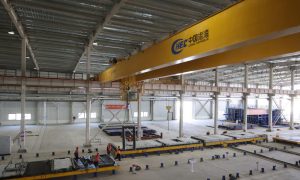Honeywell and Samsung E&A collaborates to reduce Greenhouse Gas Emissions
The initiative seeks to reduce carbon emissions and contribute to the fight against climate change

Honeywell has announced it is collaborating with Samsung E&A to market solutions aimed at the power plant sector globally. The initiative seeks to reduce carbon emissions and contribute to the fight against climate change.
Samsung E&A, a total solutions provider for the energy industry will use Honeywell’s carbon capture technologies to help power plants reduce carbon emissions and meet environmental goals. The companies will offer customers access to a carbon capture solution by jointly marketing Honeywell’s advanced solvent carbon capture (ASCC) technology.
“As two carbon capture leaders, our collaboration highlights the importance of cooperative approaches in reducing greenhouse gas emissions. Deploying Honeywell’s carbon capture technologies allows Samsung E&A to offer viable, more sustainable solutions for global clients during this energy transition,” said Hong Namkoong, president and CEO of Samsung E&A.

Carbon capture, utilisation, and storage (CCUS) can significantly reduce carbon dioxide (CO2) emissions, acting as a crucial stopgap during the transition from fossil fuels to lower-carbon energy sources. These technologies help to mitigate the environmental impact of various industries responsible for greenhouse gas emissions.
“Honeywell has long been a global leader in carbon capture technologies and our collaboration with Samsung E&A only further highlights our commitment to reducing emissions and tackling climate challenges. With decades of experience and a broad portfolio of carbon capture solutions, we are ready to help businesses meet growing carbon mitigation expectations and increasingly stringent environment goals by abating emissions from existing sources,” said Ken West, President and CEO of Honeywell Energy and Sustainability Solutions.
Honeywell’s CCUS technology has been developed and deployed in numerous applications globally. Between 2023 and 2030, Honeywell estimates that the company’s CCUS technologies will have a cumulative impact of mitigating 320m metric tons of CO2e.

























